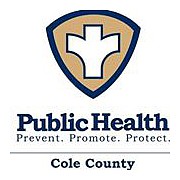With the number of cases rising in Missouri and Cole County during the past few years, health officials held a community-wide presentation Monday on sexually transmitted diseases.
The event was geared toward teenagers and their parents, guardians and teachers who want to know more about STDs in the county.
Health data show the diseases reappearing after some had nearly been erased from the county, Cole County Health Department Public Health Educator Ashley Rackers said.
Rackers shared data with listeners in the Hawthorn Bank Community Room in Jefferson City. There were 353 cases of chlamydia in the county in 2010. The projected number for 2017 is 550, a 58 percent increase. During the same period, gonorrhea increased from 63 cases to 261, a 314 percent increase. Syphilis went from two cases to 18, an 800 percent increase.
With the uptick, health officials wanted to reinforce the need to talk to kids, Rackers said.
According to a flier from the Health Department, there are 20 million new cases of STDs reported in the United States annually. People ages 15-24 make up 50 percent of new cases.
The presentation was in part intended to show parents what their children are learning in health classes, create discussions about healthy relationships and determine how to talk about STDs with children.
"It's easy to say, 'I'm going to say no to sex or drugs or smoking,'" Rackers said. "But, if you're at a party, it's really hard to say no."
Donna Seidel, the assistant director of nurses for the county health department, told listeners when she became a nurse with the health department five years ago, she had no idea how widespread STDs in the area were.
The two women Monday shared the presentation they normally give in area schools.
Seidel began by discussing healthy relationships.
A healthy relationship is fun, she said - free of physical, emotional and verbal abuse, and sexual violence.
It involves trust, being supportive of one another, following through on promises and believing in one another.
Unhealthy relationships can involve a partner pushing others to do something they don't want to do, not letting the other have friends, acting jealous or possessive, lacking trust, blaming the other for their own bad behavior, and being physically, emotionally or sexually abusive, Seidel said.
Abstinence is the only 100 percent effective way to prevent STDs, she warned listeners.
"You don't have to have sex to show somebody you care," Seidel said. "Show you care in other ways."
If pressure from your partner to have sex continues, you might want to reevaluate the relationship, she added.
If you do decide it's time to have sex, Rackers said, demand that each of you get tested for STDs. Don't accept, "They said I'm clean."
"Have the responsibility to tell your partner to go get tested," she said. "You want to see the results. If you're truly in a healthy relationship, they should be fine with that."
Rackers listed the symptoms and treatments or lack of treatments for bacterial STDs including chlamydia, gonorrhea and syphilis; viral STDs such as genital herpes, HPV and HIV; and parasitic STDs including trichomoniasis.
Heather Gray, an adopted mother of five boys and two girls, said she was surprised to hear some STDs can't be tested for in men.
Gray said she is just as concerned about STDs as she is about drugs or mental health issues, and she's willing to talk with her children about issues.
"You have to look at all sorts of things with your kids," she said. "You have to be open and honest with your children."

